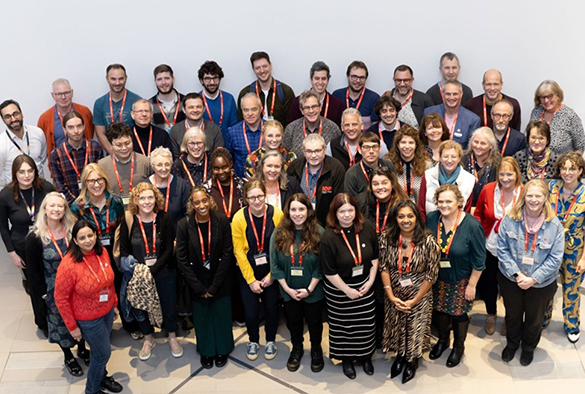
On 31 October 2024, the Institute of Physics (IOP) hosted its inaugural Physics Education Research (PER) Symposium in London, marking a significant milestone for the field. This landmark event drew researchers from across the UK, dedicated to mapping the landscape of PER, identifying its challenges, and fostering collaborative efforts to advance physics education.
The University of Liverpool is one of the few UK Physics departments with a dedicated Physics Education Research Group. Among the attendees were Dr Andrew Low and PhD student Ellen Oldershaw.
Ellen was awarded the prestigious Jocelyn Bell Burnell PhD Scholarship, co-funded by the Faculty of Science and Engineering. Under the supervision of Dr. Andrew Low, Ellen is undertaking a pioneering 3.5-year PhD project on Machine Learning and Artificial Intelligence in Physics Education Research. Both Ellen and Andrew attended the symposium, providing an opportunity to discuss their work on using hierarchical logistic regression to track awarding gaps. This research is essential for institutions to assess the impact of educational interventions, supporting the University’s commitment to equity and inclusion.
Ellen’s passion for PER stems from her own transformative journey through physics, inspired by a supportive physics teacher and a love for patterns, logic, and understanding complex concepts. Her PhD focuses on leveraging AI and machine learning to not only study awarding gaps but also to enhance physics education, ensuring it becomes more equitable and inclusive.
Ellen’s research promises to drive significant changes in UK physics education, helping to identify best practices and fostering cross-institutional collaborations. Her insights into AI's role in education aim to harness technology's potential to improve learning experiences, particularly in technical subjects like physics.
Reflecting on her journey, Ellen acknowledges the challenges of imposter syndrome and the importance of a supportive community in overcoming barriers. Her message to aspiring physicists is clear: find your community, seek help when needed, and believe in your worth.
The symposium underscored the critical need for institutional support for PER, as technology and evolving educational demands reshape the landscape. The University of Liverpool, through its dedicated researchers like Ellen, is at the forefront of this transformation, contributing to a more inclusive, innovative future for physics education.